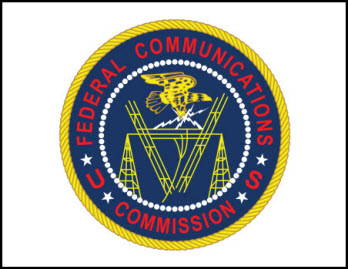At Debate: Question of Restoring Regulatory Balance

The smarter way to stay on top of the multichannel video marketplace. Sign up below.
You are now subscribed
Your newsletter sign-up was successful
The following is a transcript of a floor speech made by Sen. John Thune (R-S.D.), chairman of the Senate Commerce Committee, ahead of the chamber’s March 23 vote to invalidate the Federal Communications Commission’s broadband privacy regulations.
As chairman of the Commerce Committee, which has jurisdiction over the Internet, I have worked hard to promote policies that encourage the private sector to invest in and grow the Internet ecosystem as a whole.
All of that is jeopardized, however, if government bureaucrats have the ability to overregulate the digital world.
And when it comes to overregulating the Internet, one need look no further than the Democrat-controlled Federal Communications Commission under President Obama.
In a world that was turning away from legacy telecommunications services and instead toward dynamic Internet applications, the FCC found its role gradually diminishing.
This is an inevitable and good byproduct of a more competitive environment brought about by technological innovation and successful, light-touch polices.
Yet the Obama FCC fought hard against this technological progress and instead pursued an aggressively activist and partisan agenda that put government edicts ahead of real consumer desires.
The smarter way to stay on top of the multichannel video marketplace. Sign up below.
GRABBING FOR POWER
Over the last two years, the FCC made a stunning bureaucratic power grab.
First, the FCC stripped away the Federal Trade Commission’s authority to police Internet providers and seized that for itself by re-characterizing such services as monopoly-era telecommunications.
And then, in 2016, the FCC, which has little experience regulating Internet privacy, decided to turn our country’s privacy laws on their head by abandoning the time-tested enforcement approach of the FTC.
These actions by the FCC ignored both common sense and real-world data and instead focused on hypothetical harms of the future.
Ignoring years of Internet ecosystem precedent, where everyone was treated the same, the FCC’s 2016 broadband privacy regulations would apply only to certain parts of the Internet.
This is a source of significant concern, because at any particular time, consumers will not have reasonable certainty of what the rules are, and how their privacy decisions will be applied.
Are you at home on WiFi? At home on a smartphone? Using your smartphone on a friend’s WiFi? Using the Internet at a library?
Each of these could have very different privacy implications for a consumer because of the FCC’s piecemeal approach to privacy — leading to more confusion and uncertainty, not increased privacy protections as promised.
In enacting these lopsided rules, the FCC seems to have gone out of its way to disregard established FTC practice, by creating new regulations that differ significantly from the FTC’s tried-and-true framework.
The FTC’s privacy regime is clear, easy to understand and applies evenly throughout the marketplace. By contrast, the FCC’s rules are complex, confusing and often lead to the same data being treated inconsistently online.
The FCC’s action would harm consumers in other ways as well. Even though no consumer wants to be in the dark about newer and cheaper services, the FCC rules actually make it more difficult for customers to hear about new, innovative offerings from their broadband providers.
And because the FCC imposed heavy-handed data requirements on these Internet companies, [ISPs] will have less ability to offer services that are tailored to their customers’ needs and interests.
Furthermore, the FCC unfairly distorted the marketplace when it imposed unnecessarily onerous privacy restrictions on broadband providers while leaving the rest of the Internet under the strong, successful regime at the FTC.
MARKETPLACE RULES
When speaking about the economic opportunities the Internet now affords us, President Obama’s last FCC chairman declared that — and I quote — “government is where we will work this out.”
I couldn’t disagree more.
I believe the marketplace should be the center of the debate over how our digital networks will function, not the FCC. And I believe consumers and job creators should be the ones deciding about new technologies, not the government. The resolution before us today is the first step toward restoring regulatory balance to the Internet ecosystem.
